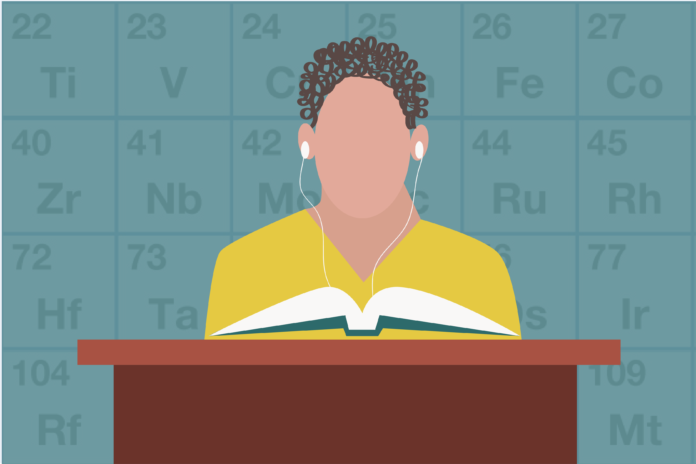Are our avenues into higher education functioning as they should be?
By ALEX MOTAWI — almotawi@ucdavis.edu
Higher education has steadily grown in importance over the past few decades. While people in the U.S. are starting to seek out other ways to progress in the workforce, having a college degree still seems necessary. Above that, getting a degree from a prestigious institution is extremely valuable and can be the career launchpad that many kids and parents dream of. While the cost of attendance for most universities is climbing to what may be considered impossible prices, the benefits of their degrees still outweigh the steep costs, making admittance extremely competitive.
With entrance to these select universities hedging heavily on standardized test results, families will do absolutely everything they can to give their children the best possible chance of success. It’s only natural for families to invest in their children, but it also heavily skews the fairness of a “standardized test” that has already been facing criticism for being biased toward certain groups. Having more funds to spend on tutors and test-prep courses does in fact correlate with higher scores, which means higher-income families are more likely to have their kids score higher than low-income families. For what should be a fair aptitude test, family wealth is giving wealthier kids an outsized advantage. The same applies in China, just to a much greater degree — and the Chinese government mustered up the courage to do something about it. Is their ban on tutoring helping curb the fact that wealth affects test scores, and can we follow similar strategies?
In China, the college admission process often dominates students’ lives to a much greater degree than in the U.S. Similar to the SAT and ACT, China uses a test coined the “gaokao” to gauge the qualifications of college applicants, and it is almost the sole factor in admissions decisions. In the U.S., students often pursue extracurricular activities to boost their chances, but everything is about the “gaokao” from the instant kids start school in China. Students (75% as of 2016) do things like attend sleepaway summer camps or hire private tutors to study for years leading up to the test. For families, the better score these programs earn their children is worth the sky-high prices, but for the government, it reduces fairness and raises the general cost of having a child, which can discourage adults from having children, negatively impacting the economy down the line.
In an effort to be fairer, the Chinese government is stamping out for-profit tutoring across the country. Theoretically, this will even the playing field, lower the accepted cost of raising children (therefore increasing family size) and allow children to develop themselves through other avenues. But is this ban working in China? Only time will tell, but due to the change, over 10 million teachers and tutors are now unemployed, and families are lacking after-school care for their children. Some sources believe the ban will exacerbate the issue, with only ultra-wealthy families able to now afford “black-market” tutoring with disguised teachers that can cost over $400 an hour. While a foundational change like this has been tough in China, the reasoning is still sound, and the transition would be much easier in the U.S.
U.S. entrance exams are a mess, since the SAT and ACT have been found to be biased towards wealthy, white students.. It’s proven that students from wealthier families score higher on the SAT, as do white and Asian students compared to those of other races. While wealthier families will probably always have higher test scores due to children having more time to study or do extracurricular activities as compared to working-class families, putting restrictions on private tutoring would be a great way to shrink this deficit.
Short-term tutoring only increases SAT scores by 20-30 points (the same as standard error), but 20-30 points matters significantly to colleges, especially for higher scorers. As someone at a prestigious university, based on my test scores, I don’t think I would be here if I scored 30 points lower, and my short-term tutoring class may have made the difference. Doing away with private tutoring in the U.S. would even the playing field and increase the number of acceptances for the lower-income students that truly deserve it. Ending private tutoring will by no means fix the problem, and wealthy families will always be able to find loopholes, but any change to balance the scales is welcome.
Our society as a whole is much better prepared for the change than China was. We don’t rely on study sessions as daycare nearly as much, and only students closer to testing time take rigorous courses in the U.S., unlike China, where students take them as soon as they can read. We also already have a substantial amount of extracurricular options for school-aged children to undertake to fill the time that would be spent studying. In addition, the entrance exam matters a lot less to colleges in the U.S. (especially after the COVID-19 pandemic), so the specific studying habit is a lot less ingrained in U.S. society. A ban on private test-prep tutors wouldn’t disturb our society, and it would be a welcome step towards increasing the fairness of our college admissions processes. Let’s follow China’s lead and make the change.
Written by: Alex Motawi — almotawi@ucdavis.edu
Disclaimer: The views and opinions expressed by individual columnists belong to the columnists alone and do not necessarily indicate the views and opinions held by The California Aggie.




